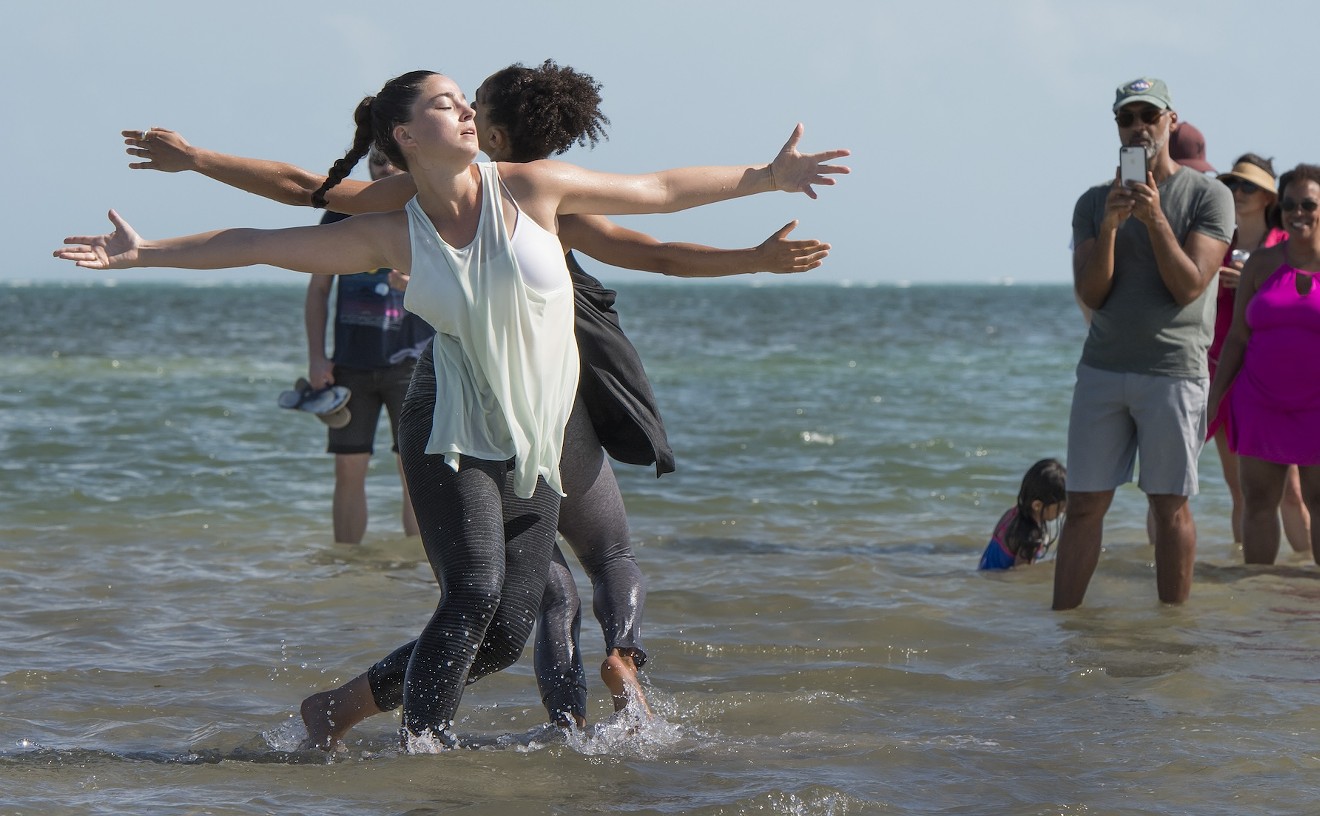Anyone who's ever done time in a South Beach club line already knows this: Club bouncers judge you.
Lauren Rivera, an Ivy League-educated sociology researcher at the Kellogg Institute, ended up infiltrating an unnamed trendy club in Manhattan (probably the kind this guy frequents) by working as a coat-check girl. After gaining the trust of the bouncers, she investigated how they make their decisions about who gets in and who gets left behind the velvet rope. The results aren't very surprising.
Apparently, name-dropping really does work. Social networks are the most important factor in deciding whether you get in. Meaning if you show up on the arm of an A-lister or at least make a convincing case that you know someone (or know someone who knows someone), you'll probably get in. Wealth is also considered a strong status indicator, but bouncers actually frown upon bribery. Instead, spend that money on wooing pretty girls and getting a good wardobe.
"Gender, dress, race, and nationality" are all considered important indicators to a bouncer. Ladies have a better chance than guys even if that guy is dressed in an elegant $10,000 suit. Of course, he has a better chance of getting in than the guy in an Old Navy polo and jeans.
Race is still an issue even though many of the bouncers are minorities themselves:
Unfortunately, the meaning ascribed to race in the nightclub setting was related to perceptions of safety. The bouncers (many of whom are Black or Latino) claimed that letting Black or Latino Americans in might jeopardize safety at the club. However, Rivera says she saw fights between white customers most nights she worked... "In the Obama age, we tend to assume that overt racial discrimination is less common," says Rivera. "But it was surprising how much overt racial discrimination took place and how upfront bouncers were about racial exclusion." The enforced dress code reflected this bias. Loose clothes associated with hip-hop culture were forbidden. Rivera quoted one bouncer as saying, "You can have a thousand dollar sweat suit on...but that's not what we want."
Still other details tipped the balance. For example, Latin Americans born in South America stood a much higher chance of entrance than U.S.-born Latinos. The bouncers said they assumed that Latin Americans were safer than American Latinos, and because they had the money and connections to work abroad, they should have money to spend. White men with no connections were often allowed in if they came draped with a few good-looking women.
Considering the study took place in New York, we can't say for sure that every detail translates directly to Miami. While we have no doubt it might exist behind certain velvet ropes in Miami Beach, we wouldn't be too surprised if the Latino factor had less importance here.
[Kellogg Institute via SFDB]











